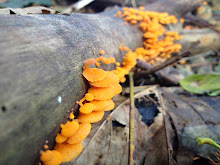Pipistrelli: negli Usa la "Sindrome del naso bianco" continua a fare vittime
(fonte: Center for Biological Diversity)
In February, biologists surveying wintering bats in southern Vermont's Aeolus Cave -- once the largest bat hibernation site in all of New England -- witnessed a gruesome scene: Dead and dying bats piled up on the cave floor in drifts of bat corpses two and three bodies deep.
Bats are dying by the hundreds of thousands across eastern North America, and the disease that's killing them -- white-nose syndrome -- shows no sign of slowing down. It's likely that this fatal, fast-spreading sickness will soon be killing bats in the Midwest and the South, home to some of the most significant bat hibernation sites in the world. Left unchecked, white-nose syndrome could spread even further to populations in the western United States and to bats in other countries.
Biologists predict that we may lose several bat species in the next few years, including several species already listed as federally endangered due to pre-existing threats from habitat destruction, pesticide poisoning, and direct killing stemming from human ignorance and prejudice.
Despite the bad rap they sometimes get, bats are vital to ecosystem health, and therefore to our own survival. Many bats are voracious insect-eaters and have been shown to curb populations of insects harmful to agriculture and forestry, while other species are crucial plant pollinators. Losing bats would be devastating for other wildlife, ecosystems, and humans.
Lack of funding and an inability to deal with fast-moving ecological emergencies have stalled an appropriate response to this very real crisis. Please, take a moment now to send a message to your members of Congress and Interior Secretary Ken Salazar to urge immediate action on white-nose syndrome. We must act now to save bats -- before it's too late.

0 Comments:
Posta un commento
<< Home